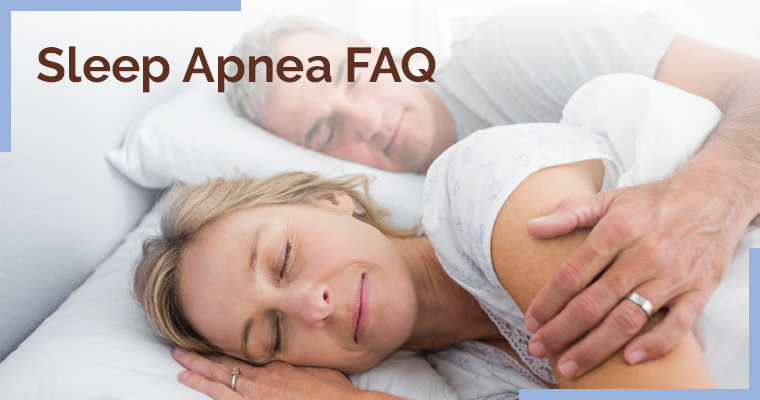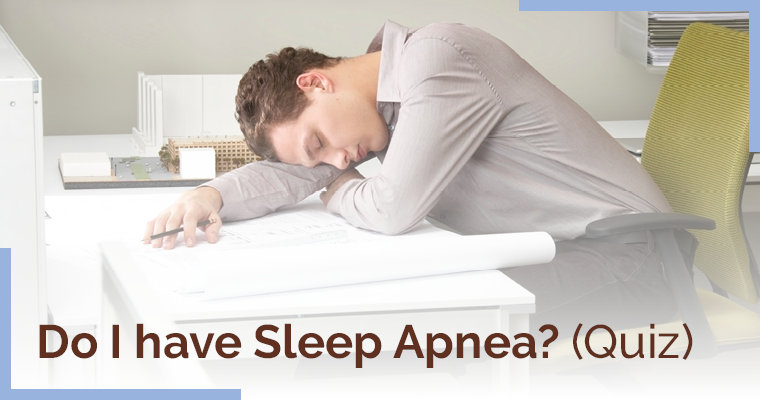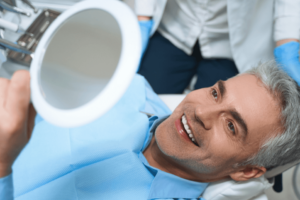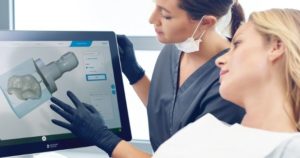Do I Have Sleep Apnea?

If you’re reading this, you may have concerns about your sleep quality, or you may be looking for information on behalf of a loved one.
Whatever your reason, understanding sleep apnea is essential to maintaining your overall health and well-being.
More than 22 million Americans suffer from mild to moderate sleep apnea, a condition that studies have shown to be directly correlated to anxiety and chronic fatigue.
Now, you may be wondering: What exactly is sleep apnea? Or how can you or your loved one get the help needed to overcome this disorder and improve your quality of life?
Keep reading; we’re about to answer all your questions and give a bonus questionnaire on drowsiness to determine if you may have sleep apnea!
10 FAQs about sleep apnea
Sleep apnea is one of the more common sleep-related disorders in America.
To help you understand sleep apnea, we’ve compiled some of the most frequently asked questions.
It is classified as either Obstructive Sleep Apnea (OSA) or Central Sleep Apnea (CSA).
1. What causes sleep apnea?
2. What is Obstructive Sleep Apnea?
It is caused by intermittent relaxation of the throat muscles, blocking the airway while sleeping.
This relaxing results in shallow breaths and a brief stoppage of breathing while asleep.
The most common characteristic of OSA is snoring.
As the air gets squeezed through the narrow airway, it makes a snoring noise.
3. What is Central Sleep Apnea?
Breathing stops and repeatedly starts due to improper signaling from the brain.
Although the muscles that control breathing do not over-relax or obstruct the air path, they do not get appropriate signals from the brain, and consequently, breathing is disrupted.
4. What are the warning signs of sleep apnea?
The most common telltale sign of obstructive sleep apnea is loud snoring—loud enough to disturb you and others, even through walls.
5. What can happen if sleep apnea goes untreated?
Sleep apnea side effects can disrupt your daily life because of its impact on your overall health and productivity. If left untreated, sleep apnea can lead to
- Low energy and reduced productivity at work
- Irritability, anxiety, and mood swings
- Diabetes, due to the inability to regulate insulin
- Hypertension, as the heart exerts more to pump oxygen through the body at night
You can also find valuable information here at our sleep therapy sight.
6. What is a sleep study, and can it be done at home?
A sleep study is a test designed for obstructive sleep apnea diagnosis and similar sleep disorders.
The test records heart rate and breathing, eye and leg movements, and heart rate during sleep.
A test monitors your sleep stages to determine if you experience disrupted sleep patterns and pinpoint the cause.
Sleep apnea diagnosis can be made at home with a Home Sleep Test (HST).
7. What is a CPAP machine, and how does it work?
CPAP therapy prevents your airway from collapsing while asleep.
Using a tube and mask, a small box delivers air into your nose and mouth at a constant pressure.
You sleep better without waking up repeatedly and snore less.
8. Are there alternatives to CPAP?
Yes, there are two main alternatives; MAD and TSD.
A mandibular advancement device (MAD) connects to the upper and lower teeth to advance or move the jaw forward.
A Tongue-stabilizing device (TSD) pulls the tongue forward using suction. The tip of the tongue then sits in a plastic bulb, protruding through the lips.
9. Can a dentist diagnose sleep apnea?
No, we cannot. But here’s what we can do;
- recognize signs of it
- gather more information
- communicate with your primary care physician
Dr. Michael Giesy is board-certified in dental sleep medicine and may prescribe one of his oral sleep appliances in accordance with any diagnosis and treatment recommendations.
10. If I snore, do I have sleep apnea?
Although snoring is not a sleep disorder, it is often a sign of obstructive sleep apnea.
You can download our FREE eBook on sleep apnea here.

Bonus quiz for drowsiness
Although this is not a scientific activity, it can help indicate your likelihood of suffering from sleep apnea.
After you have truthfully answered the questions, add up your score and check your results at the end.
How likely do you think it is that you will feel drowsy while sitting and reading?
1 – Not at all
2 – possibly
3 – Very possible
How likely do you think it is that you will feel drowsy while watching TV?
1 – Not at all
2 – possibly
3 – Very possible
How likely do you think it is that you will feel drowsy while sitting inactive in a public place (e.g., a theater or a meeting)?
1 – Not at all
2 – possibly
3 – Very possible
How likely do you think it is that you will feel drowsy as a passenger in a car for an hour without a break?
1 – Not at all
2 – possibly
3 – Very possible
How likely do you think it is that you will feel drowsy while lying down to rest in the afternoon when circumstances permit?
1 – Not at all
2 – possibly
3 – Very possible
How likely do you think it is that you will feel drowsy while sitting and talking to someone?
1 – Not at all
2 – possibly
3 – Very possible
How likely do you think it is that you will feel drowsy while sitting quietly after lunch without alcohol?
1 – Not at all
2 – possibly
3 – Very possible
How likely do you think it is that you will feel drowsy while in a car while stopped for a few minutes in traffic?
1 – Not at all
2 – possibly
3 – Very possible
Your score
If you scored 10 or more, you need to speak to Dr. Michael Giesy. Call today for an appointment to discuss your concerns.
Dr. Giesy can advise on your next best step in dealing with this.
Don’t forget you can download our FREE eBook on sleep apnea from here.
Contact us today to learn more about sleep apnea or book an appointment.
- Call us at 253-752-6630
- Email us at teresa@giesydental.com
Giesy Family & Implant Dentistry is located in Tacoma, WA…Click to open a new window to Google Maps…. We serve families from all over the Pacific Northwest, including Ruston, Spanaway, Gig Harbor, Lakewood, University Place, Fircrest, Olympia, Puyallup, Federal Way, Fife, and Port Orchard.



